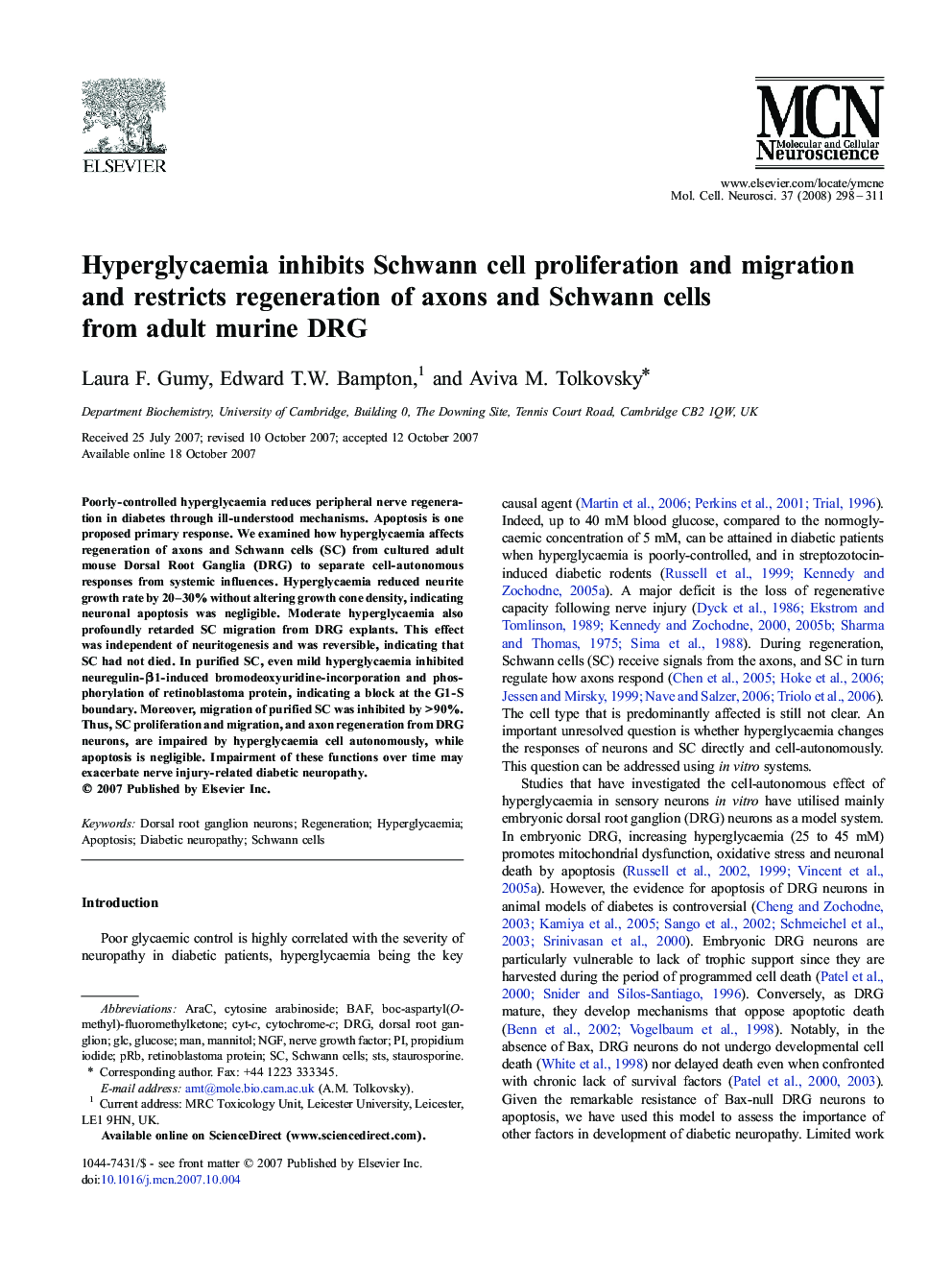| Article ID | Journal | Published Year | Pages | File Type |
|---|---|---|---|---|
| 2199183 | Molecular and Cellular Neuroscience | 2008 | 14 Pages |
Poorly-controlled hyperglycaemia reduces peripheral nerve regeneration in diabetes through ill-understood mechanisms. Apoptosis is one proposed primary response. We examined how hyperglycaemia affects regeneration of axons and Schwann cells (SC) from cultured adult mouse Dorsal Root Ganglia (DRG) to separate cell-autonomous responses from systemic influences. Hyperglycaemia reduced neurite growth rate by 20–30% without altering growth cone density, indicating neuronal apoptosis was negligible. Moderate hyperglycaemia also profoundly retarded SC migration from DRG explants. This effect was independent of neuritogenesis and was reversible, indicating that SC had not died. In purified SC, even mild hyperglycaemia inhibited neuregulin-β1-induced bromodeoxyuridine-incorporation and phosphorylation of retinoblastoma protein, indicating a block at the G1-S boundary. Moreover, migration of purified SC was inhibited by > 90%. Thus, SC proliferation and migration, and axon regeneration from DRG neurons, are impaired by hyperglycaemia cell autonomously, while apoptosis is negligible. Impairment of these functions over time may exacerbate nerve injury-related diabetic neuropathy.
